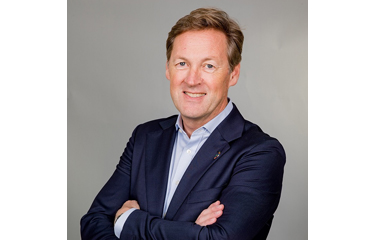The seafood industry's managing of the COVID-19 crisis can be used as a blueprint for how it can meet other challenges it will face in the future, according to IFFO, The Marine Ingredients Organization Director General Petter Martin Johannessen.
In an IFFO webinar on 20 April, Johannessen said COVID-19 presented the seafood industry with unprecdented challenges, but also gave an opportunity to adapt the way that it works. And with the expectation that there will be continued – or possibly accelerated – market growth once the pandemic subsides, the industry has the ability to lock in improved practices for the future, he said.
IFFO is among the organizations that have needed to adapt, according to Johannessen. The changing food consumption landscape is increasing the need for aquaculture feeds and marine ingredients, and the organization is updating its strategy accordingly, he said.
“We have all realized that the unprecedented events and challenges that the pandemic has brought upon us means lasting changes ... to how we all conduct our business. Adjusting to changes has also become a major skill of organizations,” Johannessen said. “This is true also for IFFO. We are adapting to new platforms and formats for communication, and at the same time, we’re developing and delivering projects and services for our members.”
As part of IFFO’s adaption, the organization’s team has been “working relentlessly to support its members and the marine ingredients industry, as well as interacting with other stakeholders,” Johannessen said.
“Changes have also been brought upon markets throughout the value chain, and IFFO’s market intelligence system has been developed further to meet the new demand for updated information,” he said.
Johannessen said IFFO will continue to communicate the importance of marine ingredients as a resource, particularly with regards to new food production trends. He said stakeholder engagement is now critical to ensure the unprecedented challenges faced by the industry are effectively addressed, and that best practices are put in place for a more rapid delivery of sustainable marine ingredients in the years ahead.
“Collaboration is key for progress and will be of vital importance to secure enough healthy food for the growing global population," he said. "According to the FAO, there is a need for 20 million tons of additional farmed seafood before 2030. This means that there’s a need for an addition 25 to 30 million tons of additional feed ingredients in this decade. This is an immense challenge, and IFFO will continue to apply science to anticipate the future state of the industry with regards to fish stocks and biomass, in addition to working for access to more responsible sources of raw materials. We also need to challenge the supply chains to secure access to more products from the processing of wild-caught and farmed seafood, which we know represents a huge, unused resource.”
Johannessen reiterated the continued importance of the FIFO (feed-in, feed-out) ratio as the critical metric for measuring the efficient use of marine ingredients.
Also in IFFO’s webinar, an industry panel agreed that the seafood and feed sectors need to do more when it comes to end-consumer communications and storytelling, particularly with the recently released movie Seaspiracy casting aspersions on the entire seafood industry.
Vitapro S.A. Business Development Director Allan Cooper said that as seafood moves further nto retail, "it’s only natural” that the industry will receive more questions from consumers.
“We are in a lovely inflection point; to be more proactive in our communications toward markets and telling the good stories that we have behind an incredible industry, and to also educate the consumer about how to prepare and eat seafood,” he said.
U.K. retailer Coop Fisheries and Aquaculture Manager Aisla Jones said sustainability and transparency will be key themes for her company's placement of seafood in its stores going forward.
“I would really like to see some good, positive stories from the seafood industry. There are some really interesting producer stories within seafood and feed that consumers don’t really know about but would be interested to hear,” she said.
Havsbrun Managing Director Odd Eliasen said such engagement could prove extremely important in the futur. He suggested a good starting point would be to inform the market about how reduction fishery stocks are harvested sustainably and responsibly, which would create a structure enabling the aquaculture sector to utilize more fishmeal and fish oil.
In addition to better communicating what it is doing so that it can avoid another situation like the public outcry spawned by Seaspiracy, the seafood industry needs to make sure that there is a consistent supply of sustainably-sourced marine ingredients, Skretting CEO Therese Log Bergjord said.
“These are fantastic raw materials that we need going forward, so let’s continue to produce them in a good way,” she said.
Photo courtesy of IFFO, The Marine Ingredients Organization







